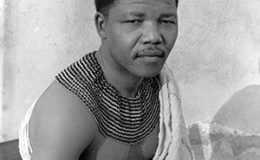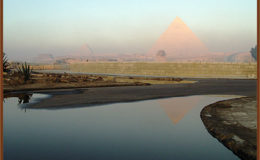Somehow I’m in Leviticus again. I didn’t do it on purpose. This time. I know I’ve drashed this parsha before, but according to my files it was in a year that B’har and B’chukotai were together and I scrolled to the B’har side of the Torah. Today we are plumb in B’chukotai which I would like to sum up as:
If…then…If you…then I will…If you don’t…then I won’t…
Some of you may know that in the next phase of my sabbatical sojourn I will journey “up” as the saying goes, לישראל. I’ve been thinking a lot about the place and the land and how much it means to so many and at what cost. The recent speech by President Obama and Prime Minister Netanyahu’s response frame (some of) the issues once again. There are passionate feelings, opinions, hopes, schemes, dreams, and demands at play on all sides.
The Torah preserves the passion for the land enflamed by despair at its loss, stoked by hopes of reentry, reoccupation and more than that, domination by those who collected, edited and preserved the Torah. And for some, the Torah shapes current conversations about the land, all of its occupants and their collective and/or separate futures. The Judean exiles spread from Egypt to Babylon, even with a re-entrenched outpost around a not-quite-Solomonic temple could have hardly expected to occupy every inch of the land they had previously claimed at the height of the golden age of David and Solomon. Surely they did not expect to murder every man and man-child with blood of other peoples in their veins living in the land. They could not have sought to rape every woman and girl-child into bearing children who would be counted as Israelites so as to eradicate their own peoples. No matter what the Torah says in some of its most troubling texts. A text without a context is a pretext. The post-exilic context of the editing of the Torah helps me with some of these texts.
When I teach difficult texts at the seminary I invite the students to employ a number of creative writing strategies to experience the text differently: how would it read as a newscast or newspaper article, as a social worker’s report, as an infomercial? What happens when one reverses the texts: trade insiders for outsiders, favored status among the nations, with reviled ancient enemy, reverse slave and slaveholder, swap monotheism for polytheism, reverse the genders of the characters and/or God?
I’d like to reframe Leviticus 26:3-13 by reversing the “if…then…” that frames the passage. One could read the text as, if we, or the ancient Israelites or even current day Israelis do something, God will do something else. But today let’s look at the things that the Torah says God will do and see if God has ever done them and what there might be for us to think about in the “if…then…”
Leviticus 26:3 If you follow my statutes and keep my commandments and observe them faithfully, 4 I will give you your rains in their season, and the land shall yield its produce, and the trees of the field shall yield their fruit.
Well, it was raining when I wrote this. For the most part it rains when it should in Israel, and even in the United States. Sometimes we get too much, sometimes too little, but the seasons turn more or less as they should – global warming aside. The respective farm belts produce enough food to feed their peoples and arguably the rest of the world. In modernity our food scarcity problem seems to be one of distribution and, well, will. I am the Wil, but not that will. So we may conlude by the seasons of rain and other weather at the approriate time and the production of foodstuffs that Israel and even the United States are full of faithful commandment-keepers.
The rest of this should be a piece of cake.
5 Your threshing shall overtake the vintage, and the vintage shall overtake the sowing; you shall eat your bread to the full, and live securely in your land.
And cake it is, bread and booze. No lack of carbs in the US or Israel. Check. Wait, what was that last part?
… and live securely in your land. 6 And I will grant peace in the land, and you shall lie down, and no one shall make you afraid; I will remove dangerous animals from the land, and no sword shall go through your land.
Something of a hiccup here. There are real security issues in the United States and Israel and Palestine and everywhere else that I have ever heard of. I’ve never heard of a land or country in which no one was afraid. A number of animals, including predators, have disappeared from their natural habitats, due to extinction; we tend to think of that as a bad thing. A land without swords – may we say acts of violence? Has there ever been such since Qayin murdered Hevel west of Eden?
7 You shall give chase to your enemies, and they shall fall before you by the sword. 8 Five of you shall give chase to a hundred, and a hundred of you shall give chase to ten thousand; your enemies shall fall before you by the sword.
Well, Israel has world-renouned military abilities. And the United States is still a super power, in spite of the changes in global and national economies. But there has never been an empire on the face of the earth that did not fall. Did the Israelites envision perpetual supremacy or that it just might be their turn again? (Egypt and Babylon each had multiple turns running the known world.)
9 I will look with favor upon you and make you fruitful and multiply you; and I will maintain my covenant with you.
Modernity has seen human reproduction and life-expectancies soar. Even in parts of the world in which women regularly die in childbirth and only a fraction of children survive into adulthood, the whole people is not endangered.
10 You shall eat old grain long stored, and you shall have to clear out the old to make way for the new.
Back to the carbs. Americans have elevated storage to a hight art: basements, attics, pantries, freezers in basements and garages, storage units, and an entire industry represented by The Container Store.
11 I will place my dwelling in your midst, and I shall not abhor you. 12 And I will walk among you, and will be your God, and you shall be my people.
A few have claimed that God is in their midst and that they are the beloved of God. More than a few have feld abhored by God. The first of my questions for us: What does it mean to claim that the God of Torah or Tanak or ancient Israel is our God? What does it mean to be or call one’s people or nation the people of God? What do these things mean in light of this text and what has and hasn’t happened in the world?
13 I am the Holy One your God who brought you out of the land of Egypt, to be their slaves no more; I have broken the bars of your yoke and made you walk with straightened spines.
There is a particular rhetoric of salvation in some black churches: It is not enough to say what you are saved from – for example, slavery – but what is it that you are saved for?
Leviticus 26:14 But if you will not obey me, and do not observe all these commandments, 15 if you spurn my statutes, and abhor my ordinances, so that you will not observe all my commandments, and you break my covenant, 16 I in turn will do this to you: I will bring terror on you…
The terror the text goes on to describe parallels accounts of the fall of Judah and destruction of Jerusalem and its temple and includes a mention of the exile. Perhaps the “if…then…” of this parsha has already been applied.
Questions:
The book of Leviticus ends with the words: Leviticus 27:34 These are the commandments that the Holy One of Old gave to Moses for the people of Israel on Mount Sinai. Who are the Israelites? The Torah teaches that Abraham and Sarah were from the land that biblical folk would come to cla Babel, the home of Babylon, that we call Iraq. They had an incestuaous sibling marriage and their descendents inner-married nieces, uncles, aunts, nephews and cousins. And their descendents also intermarried with the peoples around them: Tamar with whom Hudah had children was not from the family. Other patriarchs also intermarried: Simeon married a Canaanite woman, and Joseph married Asenat, an Egyptian making two of the twelve tribes half Egyptian. And, an unknown number of peoples from unknown national contexts left Egypt with the Israelites and integrated to one degree or another. So then “Israelite” is more of a cultural, social and religious designation than it is an ethnic one.
What does it mean to claim that the God of Torah, Tanak, Bible or ancient Israel is our God? What does it mean to be or call one’s people or nation the people of God? What do these things mean in light of this text and what has and hasn’t happened in the world? Is the “if…then…” of this parsha ethically or theologically binding on us or anyone else? What does God’s behavior (past and present) teach us about this covenant? What does this Torah say to you?
Lastly, in a Jewish Bible, the last words of Leviticus or any other book in the Torah are not actually the last words. Rabbinic bibles have a refrain: חזק חזק ונתחזק. The congregational response to the end of a book of Torah, “from strength, to strength and may we be strengthened” represents the work of interpretation. When necessary, add words to the Torah herself, even if you have to write on her pages. The rabbis and volumes of interprters have modeled the ongoing work of midrash for us. חזק חזק ונתחזק!
17 Iyar 5771
21 May 2011
Dorshei Derekh Minyan
Germantown Jewish Center
Philadelphia PA





Leave a Comment